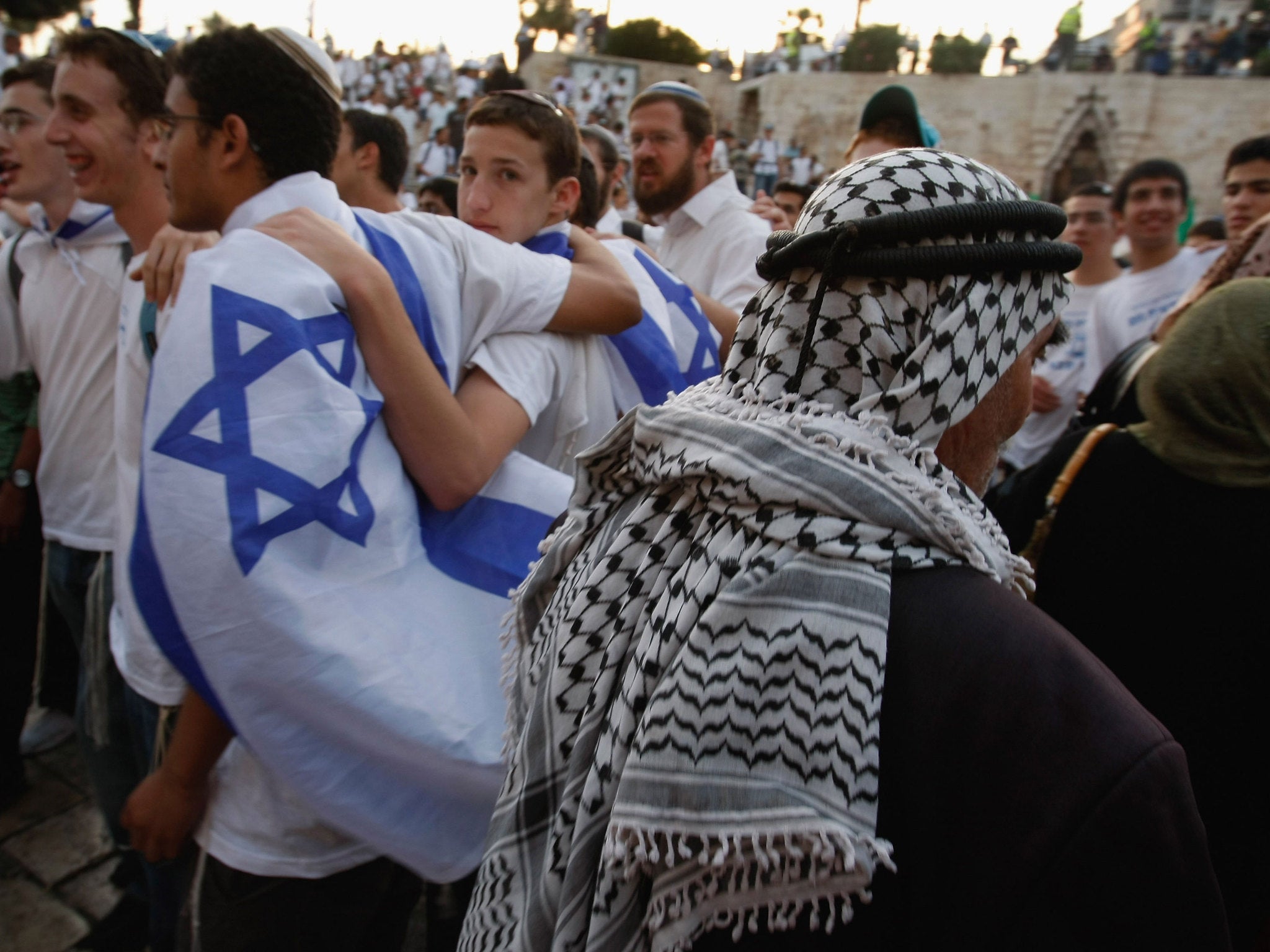Real leadership gave South Africa a new future. It can do the same in the Middle East
As the two-state solution becomes progressively more problematic, a third option, a single democratic, pluralistic, bi-national state, requires serious consideration

As a retired surgeon, I have for the last three years been engaged in delivering courses in trauma care to doctors in Gaza and the West Bank. My first visit occurred soon after the Israeli invasion of Gaza at the end of 2008. I was horrified to see the scale of destruction to the infrastructure and the suffering of the population as a result of the blockade that has been imposed on the country since 2006.
Later, in the West Bank I saw the encroachment of Israeli settlements deep into Palestinian territory and the humiliation local people may endure at the numerous checkpoints whilst travelling even short distances within their occupied country. And in East Jerusalem I have seen Palestinian families forcibly removed from homes they had lived in for many years to make way for Israeli settlers.
After being exposed to these experiences, one cannot but wonder how this clash of two such very different cultures and competing nationalist aspirations will end. Palestinians understandably resent the loss of the great majority of the land that was once theirs and the fact that many now live as refugees or under occupation and blockade in the remaining parts. These are no longer contiguous and may exclude them from visiting their holy places in East Jerusalem and Hebron. On the other hand Israelis see the land as having at one time belonged to their forefathers – albeit two millennia ago – and are proud of their creation of a modern state that provides a home and political safe haven for Jews worldwide.
I am no politician but it seems that there are only three options with respect to a resolution of the present untenable state of affairs.
The option most commonly promoted is that of a two-state solution, in which a Palestinian state would be formed from Gaza and from what is left of the West Bank after withdrawal of the Israeli occupation. This, however, has been seriously compromised as a result of the remorseless increase in Israeli settlements since 1967. As a result of this there are now approximately 500,000 settlers in the West Bank and East Jerusalem, most of whom would strenuously resist being resettled within Israel’s internationally recognised borders. Another serious problem with the two-state solution is the future of Jerusalem. That the whole city should become the capital of Israel has been regarded as “non-negotiable” by the Israelis, whereas Palestinians see East Jerusalem as their capital of a future Palestinian State.
A second option and one favoured by many Zionists, is that Israel should eventually incorporate the whole land from the Mediterranean to the Jordan River. This implies that Palestinians living in the West Bank would either have to be displaced to neighbouring Arab countries such as Jordan, or accept living in a Jewish state as second class citizens. The injustice of such an outcome hardly bears scrutiny and I cannot believe the international community would ever allow this to happen.
The third option and one that I think should be given more serious consideration than it is receiving is that of a single democratic, pluralistic, bi-national state. The concept of one state shared equally by the two peoples might seem unacceptable if not impossible to most Israelis and Palestinians living in the region. However, as the two-state solution becomes progressively more problematic and impractical there is a need to look critically at a bolder and potentially more lasting solution.
Growing up in South Africa I had difficulty in imagining how transformation to a post-apartheid democratic state could ever be achieved without bloodshed. However the country was then blessed with two great leaders in Mandela and de Klerk, who managed to persuade their respective constituencies that this was the only way forward. It is similar leadership that is now so desperately needed in Israel and Palestine. Leaders who, from the Israeli side, can recognise and put an end to the injustices of the present situation and reiterate sentiments once expressed by Golda Meir in a speech to the Knesset in May 1970 when she declared, “We did not come to dispossess the Arabs of the land but to work together with them in peace and prosperity, for the good of all”.
On the other hand Palestinian leaders would need to persuade their people that the time has come to share the land they regard as having been taken from them and work peacefully towards a solution which would be better than a fragmented and divided state of their own.
Clearly the constitution of such a state would be all important, starting with the need to ensure rigorous equality of all people before the law, whilst still preserving their own distinctive communities, religions and customs.
Has the time not come for those on both sides, as well as the international community, to start thinking seriously about a single-state solution? Would this not offer the best outcome for both nations, as well as enhancing the peace and security not only of Israel but of the region and the world?
Join our commenting forum
Join thought-provoking conversations, follow other Independent readers and see their replies
Comments
Bookmark popover
Removed from bookmarks